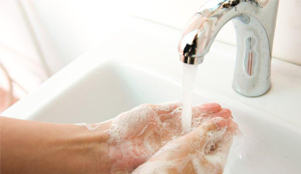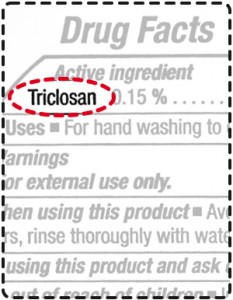- Do you still reach for hand soaps labeled “antibacterial”? Think again.
- FDA takes a close look at antibacterial soaps.
- The Food and Drug Administration (FDA) has proposed a new rule, requiring antibacterial soap and body wash manufacturers to prove that the products they make are more effective than just plain soap and water.
- Not only will they have to prove their effectiveness, but will also have to show that their products are safe for long-term use.
- “Millions of Americans use antibacterial hand soap and body wash products,” the FDA said in a statement.
- “Although consumers generally view these products as effective tools to help prevent the spread of germs, there is currently no evidence that they are any more effective at preventing illness than washing with plain soap and water. Further, some data suggest that long-term exposure to certain active ingredients used in antibacterial products — for example, triclosan (liquid soaps) and triclocarban (bar soaps) — could pose health risks, such as bacterial resistance or hormonal effects.”
- Health officials report that about 2,000 products contain these substances.
- “Our goal is, if a company is making a claim that something is antibacterial and in this case promoting the concept that consumers who use these products can prevent the spread of germs, then there ought to be data behind that,” said Dr. Sandra Kweder, deputy director of the Office of New Drugs in FDA’s Center for Drug Evaluation and Research. “We think that companies ought to have data before they make these claims.”
- Animal studies have shown a decrease in essential thyroid hormones when exposed to triclosan and triclocarban. Performing studies and collecting data in humans has proven difficult because they take so much time.
- These companies will need to provide data supporting their claims, and if they can’t, the FDA’s rule will be finalized and products will need to be remade or relabeled to be on the market.
- “This is a good first step toward getting unsafe triclosan off the market,” stated Mae Wu, an attorney for the Natural Resources Defense Council. “FDA is finally taking concerns about triclosan seriously. Washing your hands with soap containing triclosan doesn’t make them cleaner than using regular soap and water and can carry potential health risks.”
- Companies will have until December 2014, and the FDA are planning on finalizing the rule by September 2016.
- “Antibacterial soaps and body washes are used widely and frequently by consumers in everyday home, work, school and public settings, where the risk of infection is relatively low,” said Dr. Janet Woodcock, director of the FDA’s Center for Drug Evaluation and Research. “Due to consumers’ extensive exposure to the ingredients in antibacterial soaps, we believe there should be a clearly demonstrated benefit from using antibacterial soap to balance any potential risk.”
- “In fact, there currently is no evidence that over-the-counter (OTC) antibacterial soap products are any more effective at preventing illness than washing with plain soap and water,”says Colleen Rogers, Ph.D., a lead microbiologist at FDA.
- We are happy to report that the FDA and the Environmental Protection Agency (EPA) have been closely collaborating on science and regulatory issues related to triclosan.
- This will greatly help to ensure government-wide consistency in the regulation of the chemical.
- Note: The content on our website is for educational purposes only. Please consult your health practitioner or a qualified expert .
- For more on EPA’s most recent assessment of triclosan.
- For a DIY geranium hand wash soap.
- REFERENCES:
- 1.”FDA Taking Closer Look at ‘Antibacterial’ Soap.” U.S. Food and Drug Administration. N.p., n.d. Web. 26 Jan. 2014.
- 2. “Handwashing: Clean Hands Save Lives.” Centers for Disease Control and Prevention. Centers for Disease Control and Prevention, 16 Dec. 2013. Web. 26 Jan. 2014.
3, “Triclosan: What Consumers Should Know.” U.S. Food and Drug Administration. N.p., n.d. Web. 26 Jan. 2014.
4. Young, Saundra. “FDA Examining Antibacterial Soaps, Body Washes.” CNN. Cable News Network, 17 Dec. 2013. Web. 14 Jan. 2014. - 5. “FDA Finally Moves to Regulate Proliferating Antibacterial Soaps.” PR Watch. N.p., 30 Dec. 2013. Web. 15 Jan. 2014.
- 6. “FDA Wants the Dirt on Antibacterial Soaps.” Chemistry World. N.p., n.d. Web. 17 Jan. 2014.
- This is how it is listed. Courtesy of FDA.


















